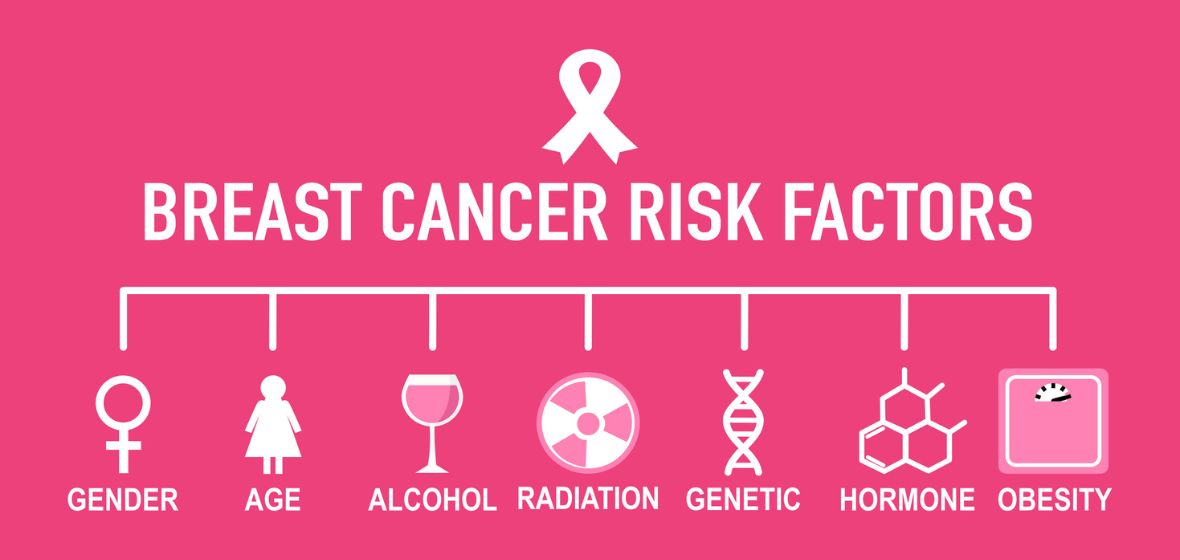
Being aware of how you can reduce your risk for a breast cancer diagnosis is very important.
Some patients with a known genetic predisposition (such as BRCA 1 or 2) and/or who have previous abnormal findings from breast biopsies, should be seen by their provider as early as possible to discuss preventative strategies, as well as surgical and medical management.
Other conditions that could affect your cancer risk include:
- Your personal medical history:
- Diagnosis of ovarian cancer
- Being of Ashkenazi Jewish decent
- Known mutation in cancer susceptibility gene in the family
- Long term estrogen use
- Prior chest wall radiation for lymphoma
- Dense breast tissue on mammogram
- Your family’s medical history:
- First or second-degree relatives with breast, ovarian or prostate cancer
- Male breast cancer
- A family member with triple negative breast cancer
- Known genetic mutations in other family members
- Prior breast biopsies that showed:
- Atypical ductal hyperplasia (ADH)
- Atypical lobular hyperplasia (ALH)
- Lobular carcinoma in situ (LCS)
- Ductal carcinoma in situ (DCIS)
With a personalized treatment plan, patients can make more informed decisions regarding their health including genetic counseling and testing, risk-reducing medications and additional cancer screening/testing.
The High Risk Breast Clinic at UofL Health – Brown Cancer Center provides individuals with a high risk for developing breast cancer an opportunity to meet with our multidisciplinary team to discuss ways to lower their risk of breast cancer. For patients interested in learning more about the High Risk Clinic or to refer a patient, call 502-562-HOPE (4673).









